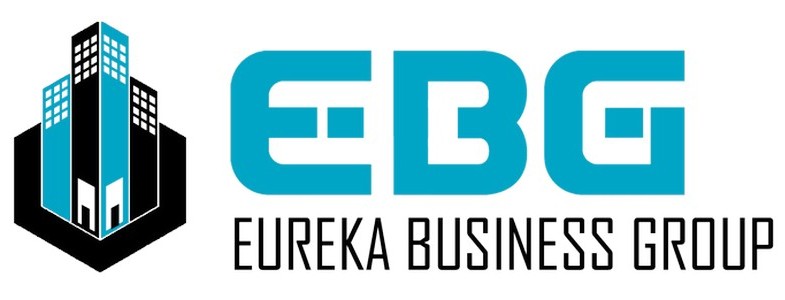- Home
- Retail
- Retail Investors Resources
- The Hidden Cost of Bad Tenants: 5 Warning Signs That Could Destroy Your Shopping Center’s Value
The Hidden Cost of Bad Tenants: 5 Warning Signs That Could Destroy Your Shopping Center's Value
As a shopping center owner or manager, your tenant mix can make or break your property’s value. While the impact of a strong anchor tenant is well understood, the destructive potential of problematic tenants often goes underestimated until it’s too late. Understanding these warning signs early can help protect your investment and maintain your property’s long-term value.
1. Inconsistent or Late Rent Payments
The most obvious red flag is irregular rent payment patterns. However, the real danger lies beyond the immediate cash flow disruption. When tenants consistently pay late, it often indicates deeper financial troubles that could lead to:
- Reduced investment in store maintenance and appearance
- Cutting corners on customer service and inventory
- Higher risk of sudden closure or bankruptcy
- Negative impact on neighboring tenants’ performance
Moreover, chronic late payments can affect your property’s net operating income (NOI) and, consequently, its overall valuation. Remember, commercial real estate is typically valued based on its income potential, so unreliable rent payments directly translate to reduced property value.
2. Declining Store Appearance and Maintenance
Physical appearance is crucial in retail. When tenants start neglecting their storefronts and interiors, it’s often a sign of financial distress or poor management. Watch for:
- Outdated or damaged signage
- Poor lighting or burned-out bulbs
- Cluttered or disorganized displays
- Delayed repairs and maintenance
- Deteriorating fixtures and fittings
These issues can create a domino effect, as neighboring stores suffer from reduced foot traffic and the overall shopping center’s image deteriorates. High-quality potential tenants may also avoid your property, further accelerating the decline in value.
3. High Employee Turnover and Poor Customer Service
While staffing issues might seem like an internal tenant problem, they can significantly impact your property’s value. High employee turnover often indicates:
- Financial struggles forcing cost-cutting measures
- Poor management practices
- Declining sales performance
- Reduced customer satisfaction and repeat visits
When customers consistently encounter inexperienced staff or poor service, they’re less likely to return to your shopping center, affecting all tenants’ performance and, ultimately, your property’s value.
4. Irregular Operating Hours
Inconsistent operating hours are more than just an inconvenience – they’re a serious warning sign. Tenants who frequently:
- Open late or close early
- Have unexplained closures
- Fail to maintain posted business hours
- Show erratic scheduling patterns
These behaviors often indicate cash flow problems, staffing issues, or poor management. More importantly, they disrupt the shopping center’s overall flow and can drive away customers who expect reliable access to all stores during standard business hours.
5. Decreasing Inventory Levels and Product Quality
Empty shelves and declining product quality are critical indicators of tenant distress. Pay attention to:
- Visibly reduced inventory levels
- Increased empty shelf space
- Switch to lower-quality merchandise
- Reduced product variety
- Delayed stock replenishment
These signs often precede major financial troubles and can lead to sudden store closures, leaving you with vacant space and potential lost income.
Protecting Your Investment
To safeguard your shopping center’s value, implement these preventive measures:
Regular Tenant Health Checks Conduct quarterly reviews of each tenant’s performance, including sales reports, customer feedback, and physical inspections. Early detection of problems allows for intervention before issues become severe.
Strong Lease Agreements Ensure your lease agreements include specific provisions for:
- Maintenance standards
- Operating hours requirements
- Regular financial reporting
- Clear consequences for violations
- Remediation timelines and procedures
Open Communication Channels Maintain regular dialogue with your tenants. Often, problems can be addressed early when there’s a foundation of trust and communication. Consider implementing regular tenant meetings and surveys to stay ahead of potential issues.
Professional Property Management Invest in experienced property management that can:
- Monitor tenant performance metrics
- Enforce lease provisions consistently
- Maintain property standards
- Address issues promptly
- Build strong tenant relationships
The Bottom Line
Bad tenants can significantly impact your shopping center’s value through both direct and indirect effects. By staying vigilant for these warning signs and taking prompt action when issues arise, you can protect your investment and maintain your property’s long-term value. Remember, it’s often less costly to address problems early or even help struggling tenants than to deal with the aftermath of their failure.
Successful shopping center management requires a delicate balance between supporting tenant success and protecting property value. Understanding and acting on these warning signs is crucial to maintaining that balance and ensuring your investment’s long-term prosperity.



